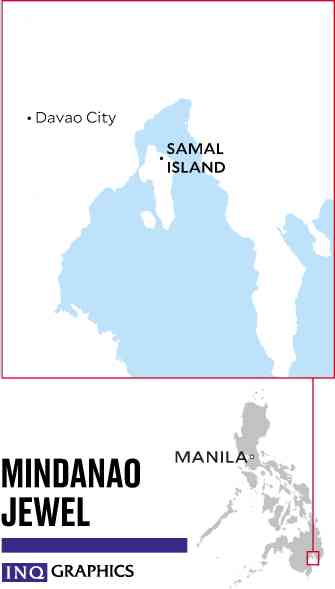
The Department of Environment and Natural Resources (DENR) in Southern Mindanao, along with other government agencies, started an inventory and inspection of resorts in Samal, about 15 minutes by ferry from here.
Ruth Tawantawan, DENR Southern Mindanao chief, said since last year, the Regional Inter-Agency Technical Committee had been coordinating with the Department of Health, Department of Tourism (DOT) and local government units for the survey of establishments in Samal.
Water quality
The committee also wanted to regularly monitor water quality in Samal’s beaches.
Samal Island’s tourism figure was not immediately available but the DOT said the whole of Davao del Norte, to which the island belonged, had drawn more than 200,000 domestic and foreign visitors in recent years.
The DOT included Samal on the list of destinations it was promoting in the wake of the impending closure of Boracay.
Tawantawan said aside from monitoring water quality in Samal, the Environment Management Bureau (EMB) had also been monitoring the compliance of resort owners with antipollution laws that required them to build sewage treatment facilities.
No violation … yet
At last year’s inspection of nine resorts there, the EMB reported it did not find any violation. There was no report issued for the current inspection yet.
A resort owner, who asked to remain anonymous, said the inspections had been going on for the past two weeks.
The resort owner said inspection teams found in some parts of Samal had been turned into docking platforms for motor boats, which could also endanger the water quality if the vessels spilled oil.
Before it’s too late
Environment Secretary Roy Cimatu earlier made an appeal to tourism hotspots nationwide to plan their sewerage and septage systems so they would not suffer the same fate as Boracay.
“Let us not wait until it is too late,” Cimatu said. —Judy Quiros